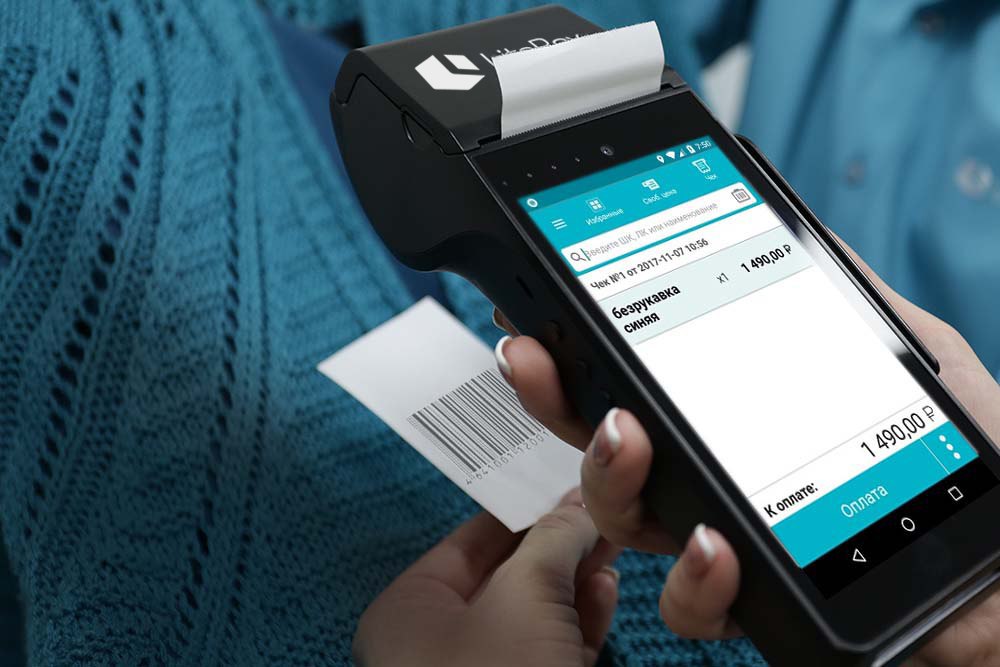Since 2014, in Russia there has been a gradual transition to a new generation of CCTV capable of connecting to the Internet. Then the experiment with electronic cash registers affected only Moscow, Kaluga region and Tatarstan. It was recognized as successful, which is why in 2016 the State Duma amended Federal Law No. 54 on the use of KKT in the Russian Federation. In particular, it involves the gradual introduction of new cash registers in entrepreneurial activity.
Online Ticket Feature
Cash registers, electronic scales, banking equipment differ in principle of operation. Online cash registers work differently than KKT with fiscal drives. Electronic cash desks send via the Internet information about each sale, the provision of services in real time to the servers of the Federal Tax Service. This happens through an intermediary - OFD (fiscal data operator).
After receiving new information, the intermediary must send an acknowledgment to the entrepreneur that the transaction data has been accepted and that the check has been assigned a fiscal attribute. Without such confirmation, the check will not be generated. Further, the OFD transfers the information about the payment directly to the Federal Tax Service. There, these data are accumulated and synthesized in a special storage.
At the request of the buyer (in the event that he leaves his data) using the online cashier it is possible to send him an electronic check.
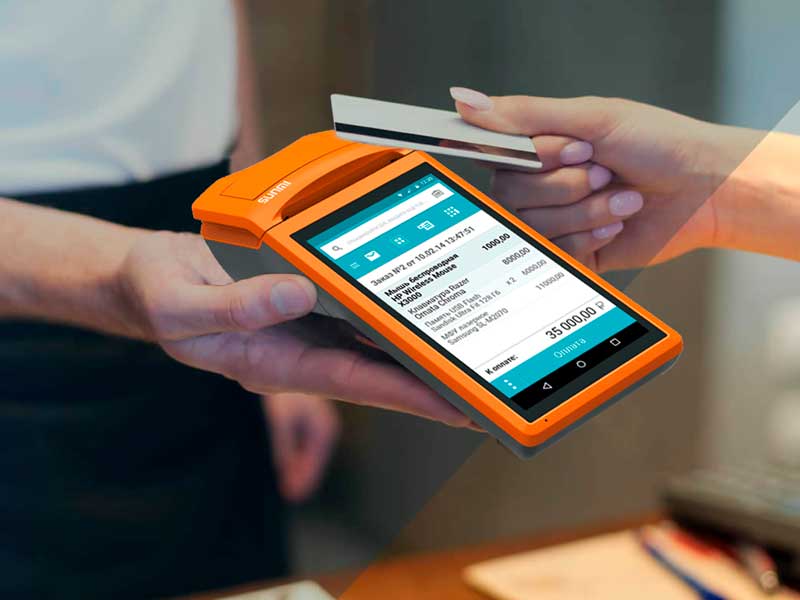
Varieties of devices
All online cash desks can be divided into two classes:
- Standalone. They are distinguished by the fact that such devices can independently beat checks. For work, they do not need to be connected to cash register equipment or a computer. Some of these cash desks do not need to be constantly connected to the mains - they are able to operate on the built-in battery. The equipment also has a communication module for transmitting information to the fiscal data operator.
- Smart terminals. A tablet or smartphone combined in one housing with a fiscal printer. A special cash register software is installed on the device, which controls the formation of fiscal documentation.
Innovation introduction
Such electronic devices that transmit data to the Federal Tax Service via the Internet have been successfully used since July 2017. But there were software crashes that blocked the work of millions of sellers right away. Soon (from July 2019), the number of users of electronic cash registers will reach 3.5 million.
They will also include those entrepreneurs who today provide services to the population using the BSO (strict reporting forms). From the beginning of July 2019, they will be forced to use automated systems to issue these forms. The latter are also recognized by the CCV. Will the manufacturers of such devices, the fiscal data operators, ensure the smooth operation of all this equipment - one of the pressing issues today.
According to the most modern requirements, electronic cash desks in Russia must have the following characteristics:
- Transfer CRF purchase data online.
- Generate electronic checks for consumers and buyers.
- Provide printing of fiscal information.
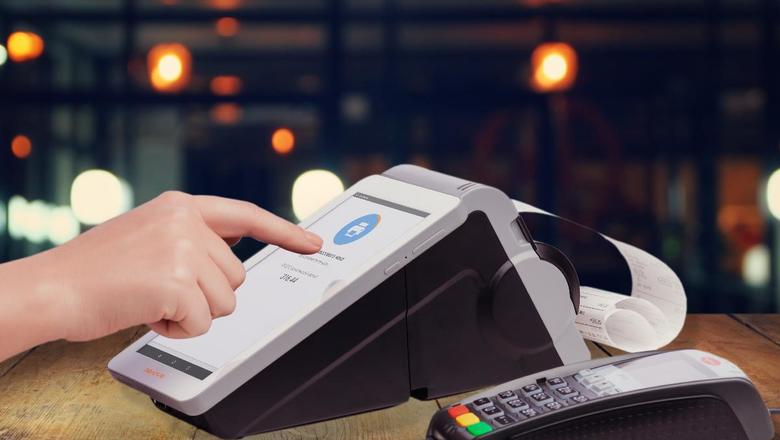
Timing of changes
Electronic cash registers were introduced in Russia gradually. Currently, entrepreneurs are waiting for the last stage of the introduction of a new CCP.
We will trace the chronology of the introduction of electronic cash registers:
- 07/01/2017. Sellers on the OSNO, USN, ESHN.
- 07/01/2018.Entrepreneurs in the tax regimes of PSN and UTII, having workers in the field of catering and trade.
- 07/01/2019. Entrepreneurs who do not have employees on PSN and UTII working in the field of catering and trade. In addition to them, IP in any mode, providing services to the population.
Who is freed?
A number of entrepreneurs and organizations are exempted from connecting electronic cash registers when settling with consumers and customers. This list is normalized by Art. 2 Federal Law No. 54 (2003).
Electronic cash registers may not be used when engaging in the following activities:
- Sale of newspapers, magazines and other printed materials in kiosks. But only on condition that such products make up at least half of the total turnover.
- The sale of various securities.
- Sale of coupons, tickets for travel in public transport (taking into account the fact that this happens in the passenger compartment).
- Catering services for workers in educational institutions (only during training sessions).
- Trade at retail fairs and markets, exhibition centers. The only exceptions are pavilions, tents, kiosks, shops, containers, car dealerships. This exception does not apply to the special list of food products approved by the Russian Government.
- Sale in kiosks of soft drinks for bottling, ice cream.
- Sale on bottling of milk, kvass, vegetable oil, kerosene from tankers, live fish.
- Seasonal sale of fruits, vegetables, melons on the ruins.
- Distributed trade in both food and non-food products (except those that require certain conditions of sale and storage).
- Reception of scrap materials and glass containers from the population. Exception: precious metals and stones, scrap metal.
- Sale of products of art crafts. But only by the manufacturer.
- Coloring and repair of shoes.
- Repair, manufacture of keys and other metal haberdashery.
- Sawing wood, plowing gardens.
- Services for the care, supervision of children, the elderly, the disabled, seriously ill people.
- Porterage services provided at ports and train stations.
- Rental of housing, if it is the property of the entrepreneur.
- Pharmacy points located in the countryside.
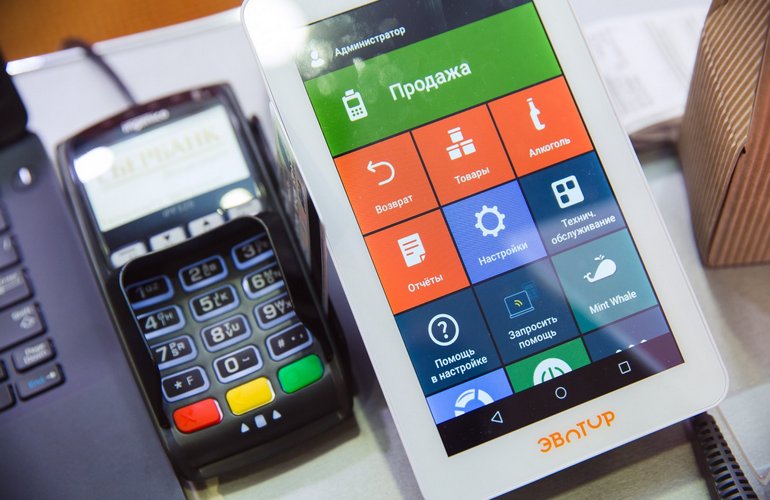
Exceptional Cases
Electronic cash registers may also not be used by individual entrepreneurs and organizations conducting settlements in hard-to-reach or remote areas. But these settlements should be indicated in the list, which is approved by the local authorities of a particular region.
According to the Order of the Ministry of Communications of the Russian Federation No. 616 (2016), it is permissible to use old-style CCPs instead of new electronic cash registers in settlements with a population of up to 10 thousand people.
But these exemptions and exceptions do not apply to those entrepreneurs who trade in excisable goods, use automatic devices (vending machines) for calculations.
Cash payments without the use of CCP are provided for the sale of religious objects, the provision of religious services, and the sale of religious literature.
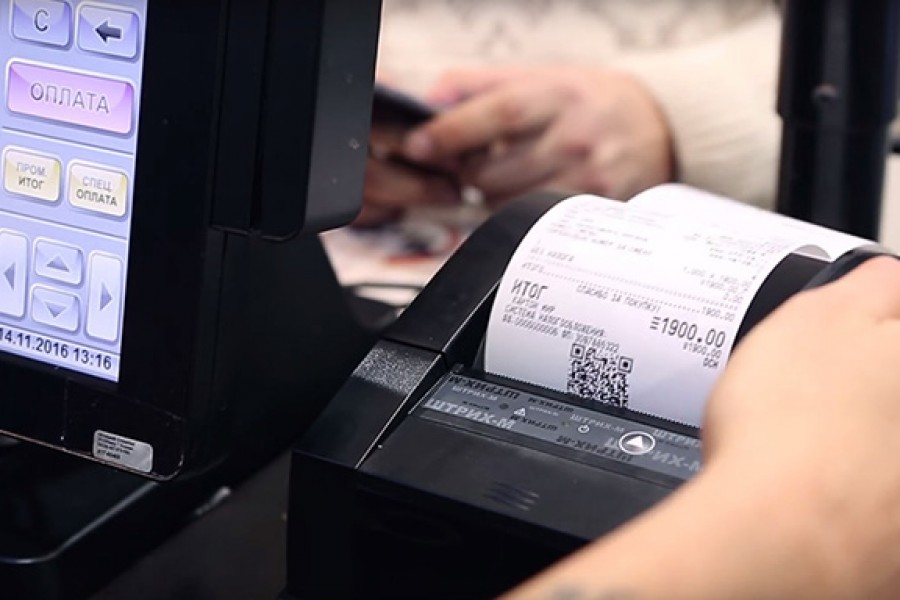
Cost
What is the price of an electronic cash register? The cost of acquiring new equipment is from 25 thousand. In addition, there is an option to upgrade your existing cash register by installing a fiscal add-on and new software on it. It will cost about 10-15 thousand rubles.
But do not think that the matter will be limited to the costs of acquiring or upgrading the cash desk. It is necessary to include monthly payments for the services of an Internet operator, an operator of fiscal data in the cost estimate. OFD is selected only from the official list.
The lowest service rates for the first year are at least 3,000 rubles. Subsequently, the cost of such services will only increase. It will be about 12,000 rubles a year. The cost will also be affected by the number of cash desks that an entrepreneur will connect.
Another embezzlement is the registration of an electronic cash register with the Federal Tax Service. There are two ways to do this. The first is through the CRF. This is 2-3 thousand rubles. You can also do this directly on the official website of the Federal Tax Service. This is a free procedure. But only if you have an electronic signature.
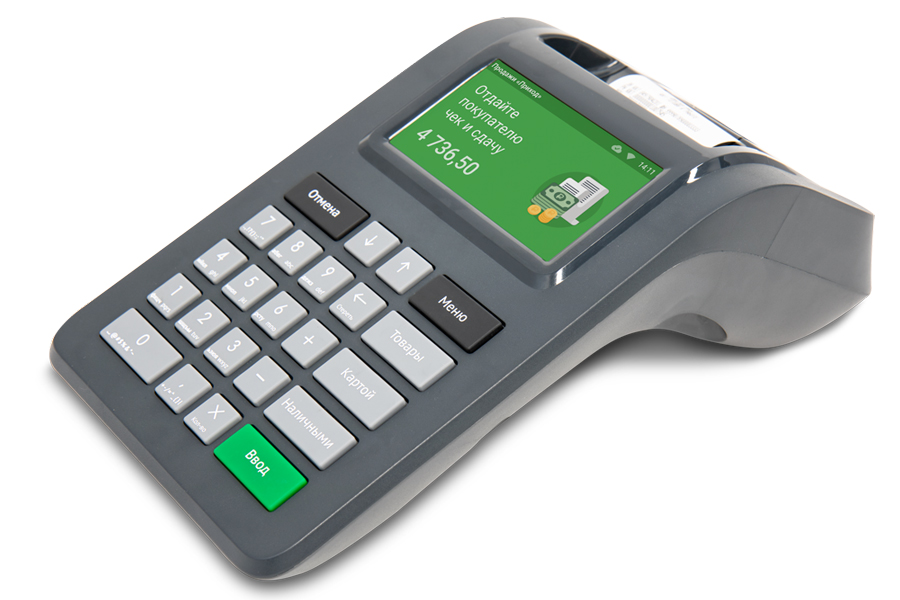
What is an EDS?
Do I need an electronic digital signature for a cash register? First, decide what it is.
EDS is regulated by the Federal Law "On Electronic Signatures" No. 63 (2011). This implies two varieties - simple and enhanced. For the latter, two subcategories have been introduced - qualified and unskilled.
Simple and unskilled digital signatures are used in the preparation of primary accounting documentation. As for invoices, tax reporting, only an enhanced qualified signature can be used in relation to them.
These signatures are confirmed by an appropriate certificate from an accredited Managing Center. Documents containing digital signatures are equated with paper counterparts with "live" signatures. EDS has legal significance, it is equal to a handwritten signature.
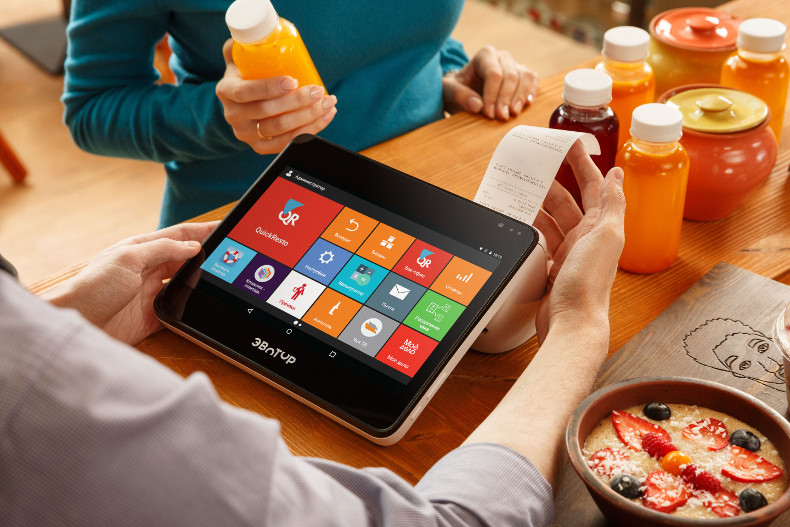
EDS and online cash registers
We will figure out whether an electronic signature is needed for cash registers. Yes, because the agreement with the OFD for the transfer of fiscal data to the Federal Tax Service should be certified by the electronic digital signature. It is drawn up at the IP, the head of the organization or a proxy.
A signature will allow you to register online checkout in a matter of minutes. With its help, you can also sign the following documentation in your personal account of electronic CCP:
- Applications for registration and re-registration of online cash registers.
- Applications for the deregistration of the cash register.
- Fiscal storage closure reports.
- Reports on the change of parameters during the registration of electronic cash registers.
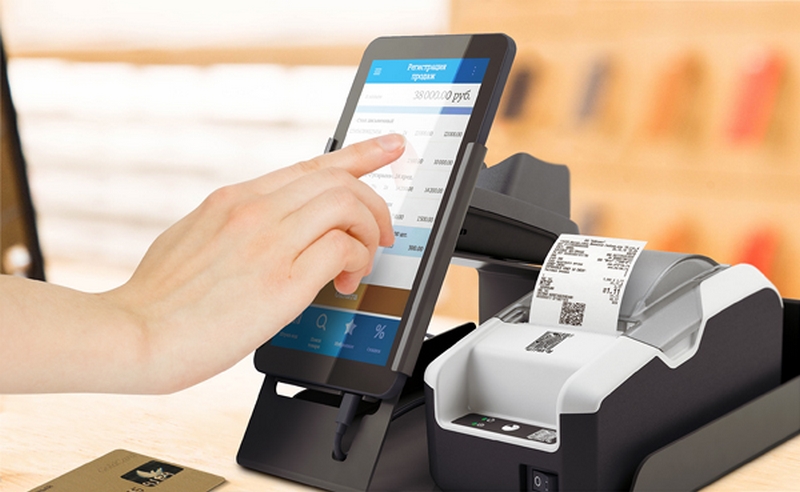
Electronic cash registers from July 1, 2019 should be introduced by most IP.
We examined the features, varieties, the cost of this technique, the possibility of using EDS.
